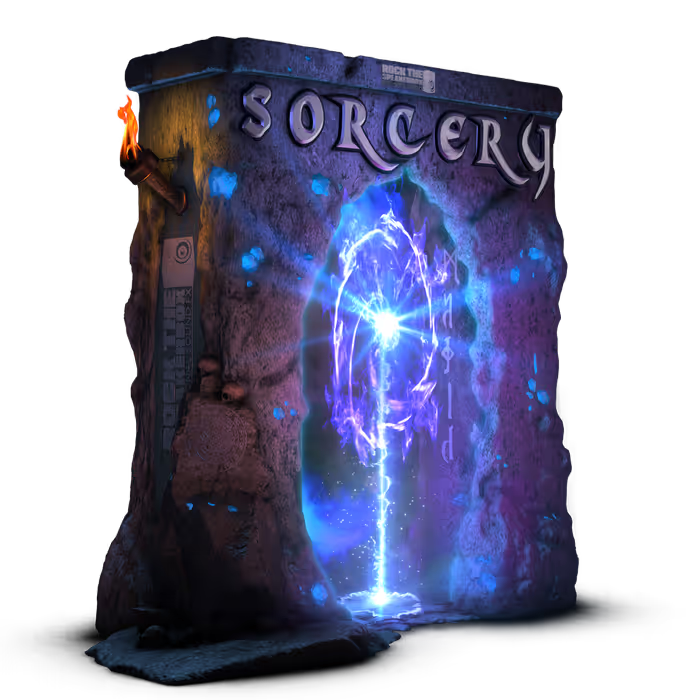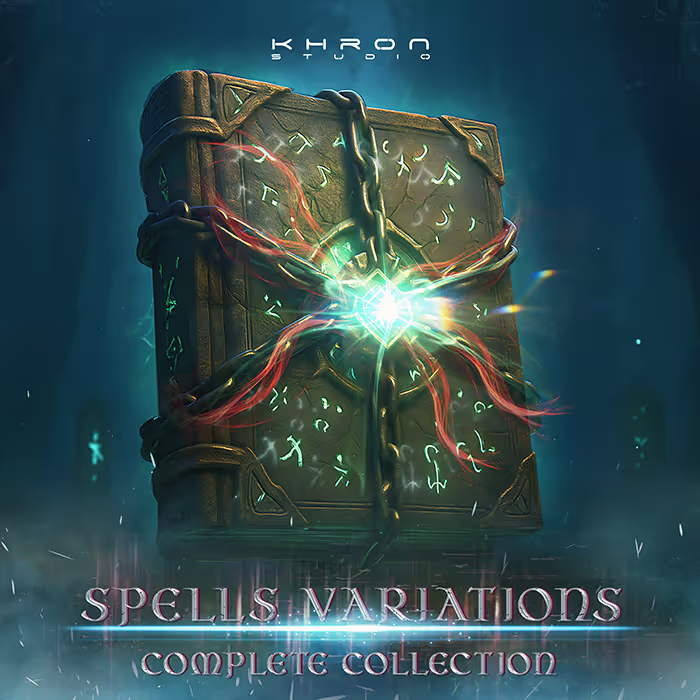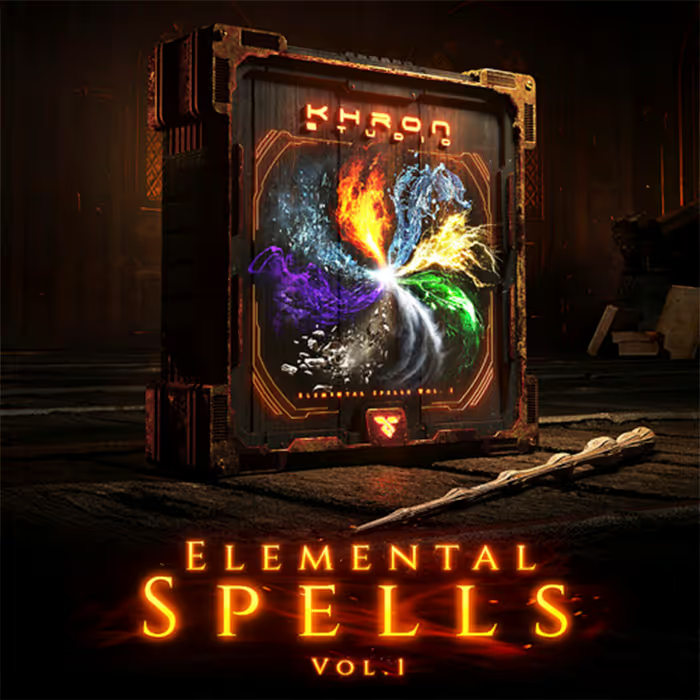Speaking the game development ‘language’
I often get contacted by people who are interested in getting into game audio for some advice on starting up and moving forward which is great, and although I’ve only got a few years under my belt, I’m keen to attempt to help where I can because I was given so much fantastic input from the game audio community when I was trying to get my foot in the door. I believe that language is at the core of everything we do in life, and so much of learning, whether it’s a new skill or a craft we’ve been honing for many years, is speaking the ‘language’ of that subject.
For working in the games industry this includes specific game-dev-related terminology but also an understanding of how all the bits fit together. This is often overlooked by aspiring audio folks in favour of focusing on the development of the hard skills you need to do the craft. But game development is a multi-disciplinary field, and thus a great deal of communication between different teams is required make games happen.
Understanding of how all the bits fit together […] is often overlooked by aspiring audio folks in favour of focusing on the development of the hard skills you need to do the craft
Thus, a big part of being experienced is actually about having the language to communicate with people. You pick so much of this language passively when you start working in a studio, but it’s actually very important to have a grasp of some it in the early days of your journey into the industry so that are able to have conversations and connect with people.
It can be hard to learn the language on your own, because you need to hear people use words and phrases that you don’t know before you can look them up: you don’t know what you don’t know. I though it might be interesting and helpful to put together a bit of a glossary of terms, things and job roles, and how they relate you as a game audio professional. I’ve ambitiously put ‘Part 1’ in the title in the hope that I’ll have the time to do other parts, with a few different glossaries that go over different areas. This first one is about disciplines other than audio, and how what they do relates to your role in sound.
Game Development roles and how they relate to audio
This is based on my own experiences. Different companies work in different ways, and even different game teams within the same studio will differ in how they work and how there are structured. This is more focussed on mid to large sized game studios rather than small indie teams where you have a small number of people wearing loads of hats. It is worth noting as well that of course all disciplines relate to all other disciplines in some respect, but I’ve outlined the key ones that come up in relation to the day-to-day life of an in-house game audio designer. If you work in one of these disciplines and my description of your role is offensively over-simplified: my apologies in advance!
The Game Designer’s role in game development: These folks work on the core fabric of the game. Their work defines what all the other creative and technical disciplines will do. On a high level they will do things like decide on direction and vision of the game, design puzzles, combat systems, character classes etc. On a lower level things like how much damage a weapon does and what it looks and sounds like, how fast your character moves, the layout of the controls etc.
How it relates to game audio: A huge number of decisions made by game designers will inform your work as an audio designer. They will be the go-to person to discuss what things need to sound like and in many ways your role is to bring sound to their vision of the game.
The VFX Artist’s role in game development: They make all the pretty stuff that pops up on screen: explosions, muzzle flash, little puffs of debris behind players’ footsteps, bits of highlighting to draw your attention to things, magic spells etc, numbers that popup on screen to show how much damage you dealt etc.
How it relates to game audio: There is a very close link between VFX and audio. What one does will heavily influence the other, and they tend to go hand in hand. This means to need to be communicating a lot to coordinate what you’re doing, and negotiating access to the files as you’re often needing working on the same things around the same time.
Localisation’s role in game development: Translates the game into different languages.
How it relates to game audio: If your game has localised VO, obviously you’ll need to work with the loc team. Even if there’s only one language voiced, if you end up editing any scripts in VO sessions, the loc team will need to know so they can edit the subtitles.
The Animator’s role in game development: They make game object move.
How it relates to game audio: The link between animation and audio is crucial. The majority of SFX in game (in everything I’ve worked on at least) are triggered from animations. For that you’ll need write access to animation sequence files so you need to negotiate with animators as you might not be able to work on the same files at the same time. For most things it’s not possible to do a proper audio pass until you’ve got the animation for the respective job, and if that animation changes at all you need to iterate on the audio again so that everything stays in sync.
TL;DR: get to know the animators well because you need to communicate a lot.
The Narrative Designer’s role in game development: They write the dialogue and the stories and the lore of the game.
How it relates to game audio: If your audio design role involves working on VO then there is back-and-forth with narrative designers, from higher level things like casting characters and helping to decide on game hooks for dialogue trees down to them sitting in on VO sessions to help actors with how to pronounce and deliver the dialogue they wrote.
The Producer’s role in game development: Organises and manages the pipeline, so that everybody is working on the right things at the right time. Uses a project management tool (JIRA) to oversee what everybody is up to and keep things moving forward.
How it relates to game audio: As an audio designer your work on a game will need to be broken down into potentially thousands of smaller tasks, and for many of these you will be depending on somebody else to finish their work before you can start yours. Producers are there to minimise any blockers and make sure everybody can work effectively on whatever is the highest priority at the time, and manage deadlines and the break down of projects into manageable chunks.
Quality Assurance (QA)’s role in game development: Tests all the content that goes into the game and makes sure everything is working as intended, and to feedback their findings to the appropriate person (programmer, designer, animator audio designer etc). These people are the lifeblood of the game, never underestimate their importance and expertise.
How it relates to game audio: When you finish a task QA will then need to check it to make sure you’re doing what you intended to do. You need to communicate with them to let them know how to test your work and what the acceptance criteria are, and they need to communicate with you with feedback and if there are any bugs or omissions in the audio. Some companies have dedicated audio QA but most of the time this is not the case. The better your relationship with QA, the better the end result is going to be.
The Gameplay Programmer / Audio Programmer’s role in game development: They write and maintain the code that makes the game (/audio) work.
How it relates to game audio: Every sound you make will need to be triggered by the game code in some way, regardless of whether you use middleware or not. Programmers will help you make that happen. Even if your implementation skills are really hot and you can hook up everything yourself using code/visual scripts or animations, you’ll likely still have a lot of dialogue with the programming team because they will have an overarching vision on how to keep the game code clean, efficient and reusable. An audio programmer is dedicated specifically to supporting the audio team, whereas gameplay programmers will be supporting you alongside all the other things they do. Audio programmers often come with other audio code skills beyond implementation as well such as DSP and building tools to improve the audio pipeline, and you will love them dearly.
The Engine/Tools Programmer’s role in game development: They write and maintain the code that makes the software that everybody else uses to create the game.
How it relates to game audio: A tools programmer might create the application that you use to sync audio to an animation, or to place sounds in a game level for example. An engine programmer might be working on the deep-level stuff to do with how audio plays in the game. You’ll have much more of a relationship with this team if you’re using a proprietary game engine rather than a third party engine but even if you are using Unity or Unreal your paths may cross as bugs and issue come up, or for utilising more advanced middleware features, debugging or making custom tools for your workflow.
Community Management (CM)’s role in game development: They talk to the players, manage social media and generally are the public face of the game team.
How it relates to game audio: Game communities of today have an appetite to see what happens behind the scenes and discuss the game with its creators and this can sometimes mean there being a dialogue between players and the audio team. Examples from my own experience include appearing on company live streams and panels at live events to discuss all things audio, taking questions from players through an exclusive forum for prime members and chatting to players when they come in for tours around the studio, all organised by the CM team.
Video/Marketing’s role in game development: Makes the videos and trailers that get released to the world promote the studio and its products.
How it relates to game audio: These videos will need audio! The audio team is responsible for every noise that comes out of the company. Some studios have dedicated post-production audio people to work on the ‘linear media’ (i.e.: not the in-game audio) and some have the game audio team working on this content. Either way there is often a strong relationship between the two teams.
The Environment Artist’s role in game development: Making the props and scenery that go into game levels.
How it relates to game audio: If you’re working on ambience then what the environment artists make and where they place it will inform how you design the audio. You’ll both need to have write access to the map files for quite a long time in order to place your objects in, and usually these are locked so that only one person can edit them at a time, so I’ve found environment artists to be another one I need to communicate with a lot so that we don’t block each other, and if you have a good rapport with them then they will be more likely to inform you if they make any audio-breaking changes such as moving or removing things you’ve mapped audio down for.
The Concept Artist’s role in game development: They take the designers’ words about how things in the game should look and turn them into pictures that the rest of the art team (character, environment, VFX artists and animators) then use as a reference for their work. This is everything from weapons and environment props to creatures and players.
How it relates to game audio: Often (as always I’m talking from my experience) the rest of the art work on a particular job will be done before you start working on the audio, so you have completed models with animations and VFX all ready to go to design sound to, however it happens a lot that you need to be designing, or at least starting to design sound for things at the same time as the art team are doing their stuff. Concept art can be extremely helpful in giving you inspiration and reference for the sounds you need to make.
I hope this has been helpful. If you have any questions, or if you feel I’ve missed something or what I’ve written varies quite a lot from your experience then feel free to get in touch at [email protected]
Ashton Mills is an Audio Designer at Jagex, a game studio based in Cambridge UK, where he works on soudn design, VO and implementation across a range of game projects. (All thoughts and opinions are his own and not that of Jagex.). Learn more about him on LinkedIn here, and on Soundlister here.
Power Lists - essential audio resources and insights:
• The Sound Design Power List
• The Game Audio Power List
• The Film Sound Power List
Succeed in sound:
• How to Set (and Get) the Right Price for Your Audio Work
• 10 Essential Tips for Game Audio Freelancers
• How to be a successful sound designer – with Scott Gershin
• How To Actually Live as an Audio Freelancer – by Melissa Pons
• How to set your sonic creativity free & overcome creative inhibitions – by Mark Kilborn
• 5 Useful Tips for Upcoming Sound Designers and Sound Editors
• Sound Opinions: How to get game audio pricing right
• Building a successful audio post studio – with Kate Finan and Jeff Shiffman
• Rebuilding your studio: Goals, tips and lessons learned
• Creating audio for games – with Martin Stig Andersen
• A life in sound: How to foster creativity and protect yourself from burning out – with Chance Thomas
• Better audio work habits: How a Wacom Tablet can help reduce the risk of Repetitive Strain Injury (RSI)
• Better audio work habits: How a sit & standing desk can reduce your sedentary studio life
• Tips and thoughts on running your own audio post production house – with William McGuigan
• 30+ year audio veteran Andy Greenberg, on building client relationships in the advertising industry
• 7 Sound Alternatives to Working For Free
• Audio Outsourcing Success: Essential Tips, Thoughts and Working Practices from Adele Cutting
• How to succeed in UI/UX Sound Design, ADR Recording, & Audio Programming
• How to succeed in sound design for Film, Documentaries, and Trailers
• How to succeed in sound design for Games, Animation, and Television
• How to succeed in Field Recording, Foley, and Teaching Sound
• How to succeed in Audio Branding, Music Editing, and sound for VR
• How to succeed in Theater Sound Design, Podcast Sound Design, and Podcast Production
• How to succeed in Sound Editing, Sound for Advertising, and Production Sound
• How to succeed in Sound Editing, Sound for Advertising, and Production Sound
• The Composer Success Series: Composing for Film – ft. Pinar Toprak, Nainita Desai, & Jonathan Snipes
• The Composer Success Series: Composing for TV – ft. Charlie Clouser, Sherri Chung, & Cindy O’Connor
• The Composer Success Series: Composing for Theatre – ft. Elyssa Samsel, Kate Anderson, and Daniel Kluger
• The Composer Success Series: Composing for Games – ft. Inon Zur
• The ‘Quit Aspiring’ book – by Adam Croft
• How to get hired in game audio – thoughts and insights from your potential employer’s perspective
• Why gear is not the ticket to entry in the game audio community
• 4 Effective Ways to Break into Game Audio
• Tips for Creating a Perfect Resume for Audio Industry Jobs
• Yet Another Game Audio Hiring Article – by Ariel Gross
• 5 Tips for Getting a Job in the Audio Industry
• Applying for a job in game audio – by Matthew Florianz
• Freelance Game Audio: Getting Started and finding work – by Ashton Morris
• How to get started (and make it) in game audio – 10+ fundamental questions answered by Akash Thakkar
• Courses: How to network and get paid for your work in the game industry – by Akash Thakkar
• How to Craft a Perfect Cover Letter for Audio Industry Jobs
• Get the weekly Audio Jobs newsletter
• Join the Audio Jobs Facebook group
• Upload your demos to Soundcloud
• Upload your demos to ReelCrafter
• Find interesting audio events around the world
• Find other audio pros around the world
• How to prepare for – and power through – a layoff in the game audio industry, with Brian Schmidt:
• How to Survive a Game Audio Layoff – insights from Damian Kastbauer
• What it’s like to be laid off from your video game studio
• What To Do Before and After Being Laid Off
• Facebook Group: Survival Skills for Creatives
• How To Learn Game Audio Online – A talk with Game Audio Educator Leonard Paul
• Hear the very best podcasts about sound
• Read the 100s of sound stories and guides on the A Sound Effect blog (search for stories here)
• Browse Industry Data: Game Music and Sound Design Salary Survey Results
• Browse 100+ Sound Design Guides
• Find essential books about sound – for film, games and audio post production
• Get tips and ideas for making your own sound effects
• Use the Audio Events Calendar to find audio-related events around the globe
• Get a steady stream of great sound stories from the community
• Discover 1000s of sound libraries from the independent sound community
• Take online courses in Wwise, FMOD Studio, Unity, Pure Data & Unreal at the School of Video Game Audio
• Sound effects survey results: Here are 90+ ideas for new SFX libraries
• How to create an indie sound bundle
• The quick-start guide to adding sound FX library metadata





